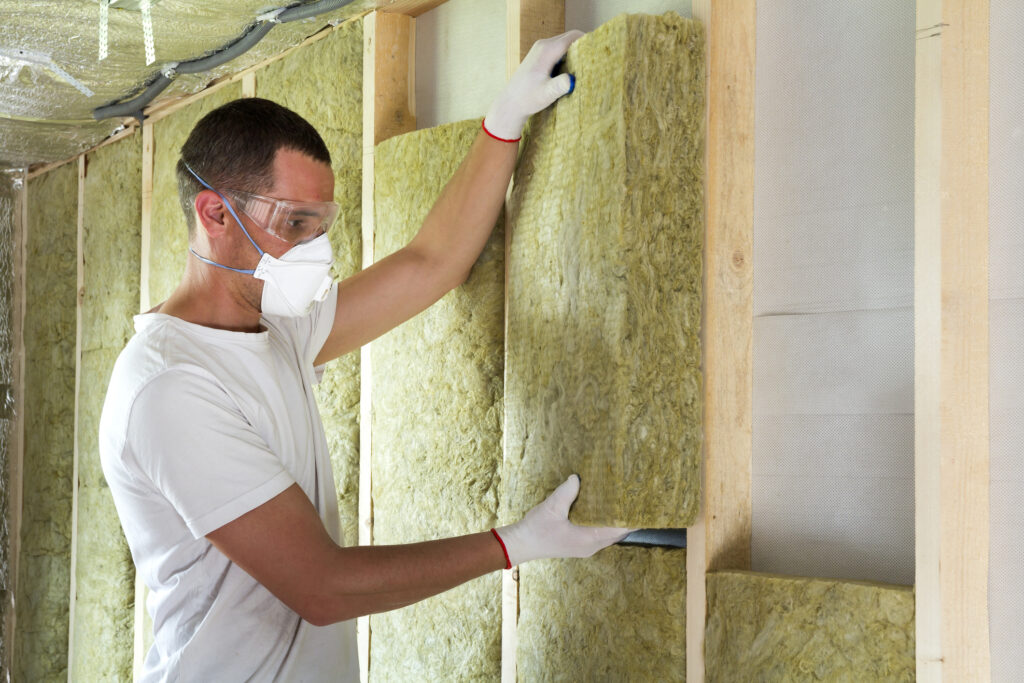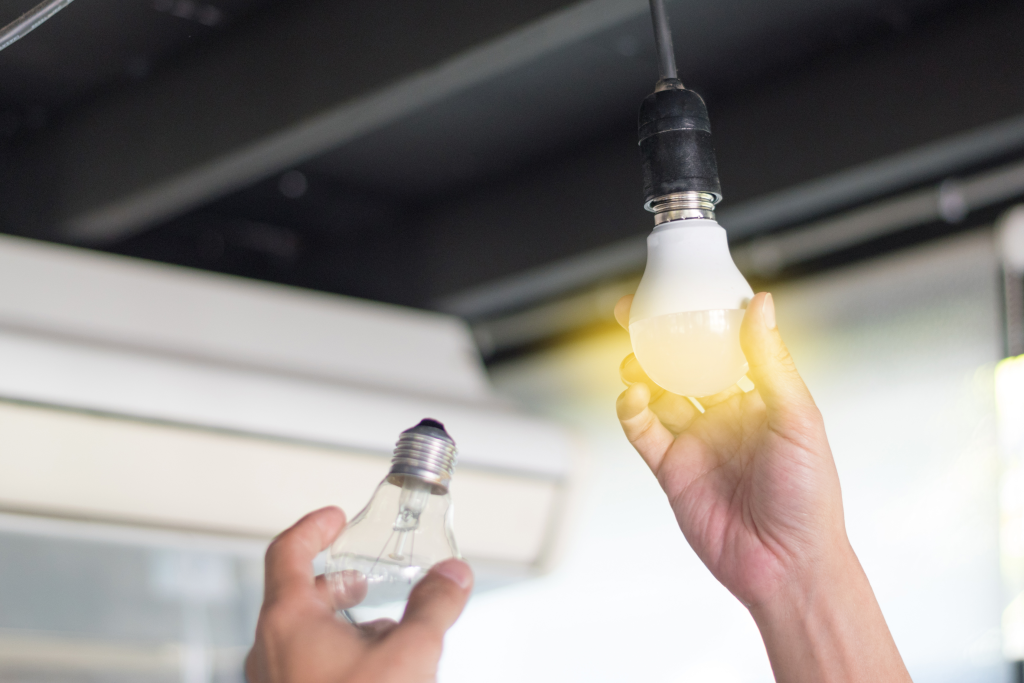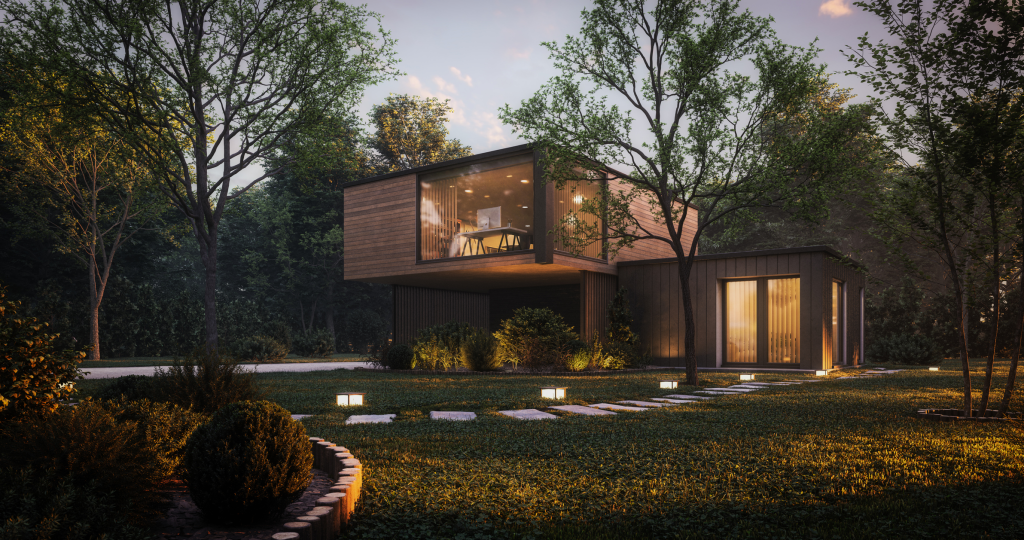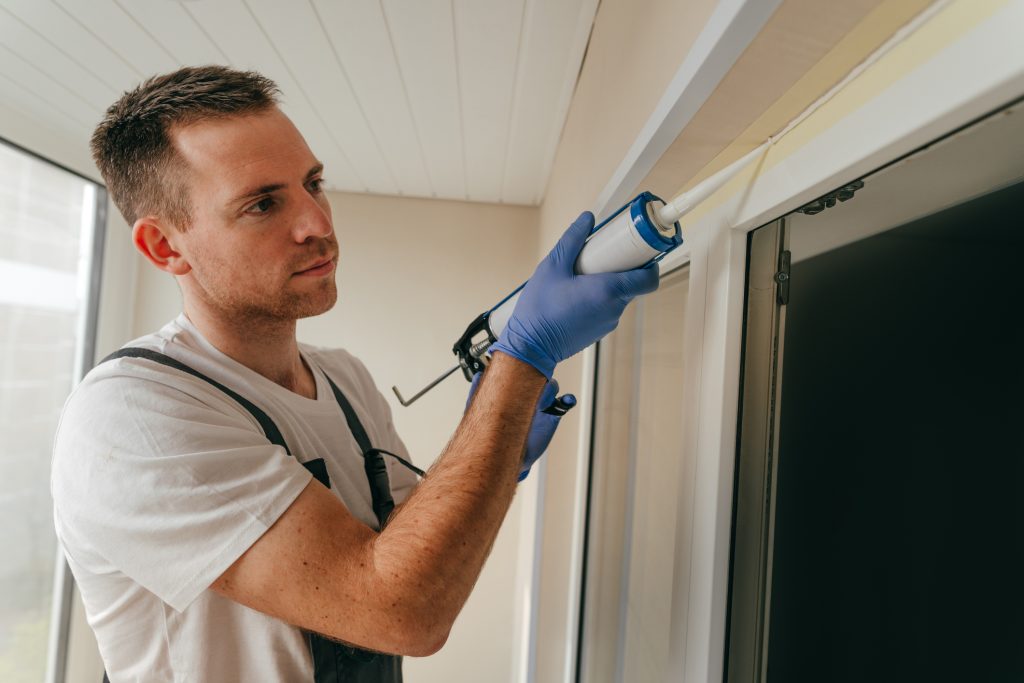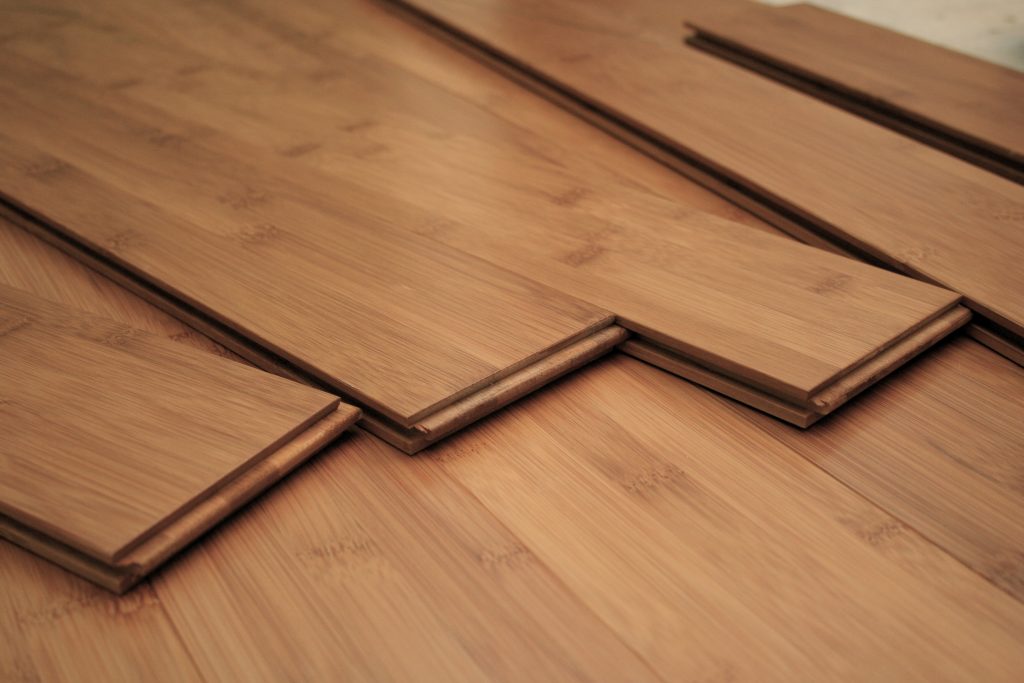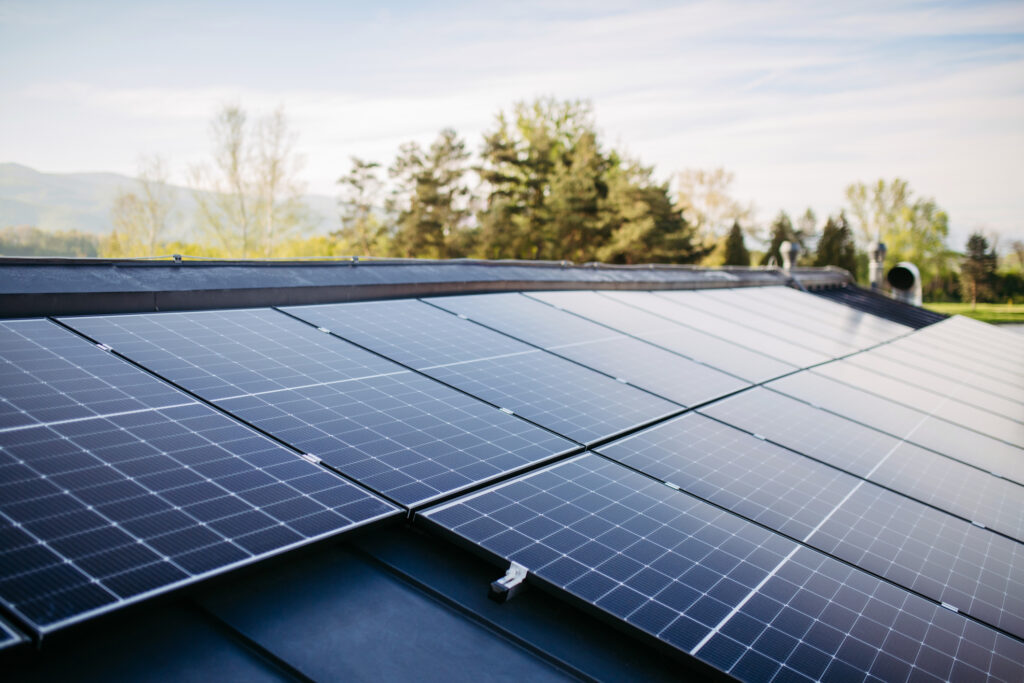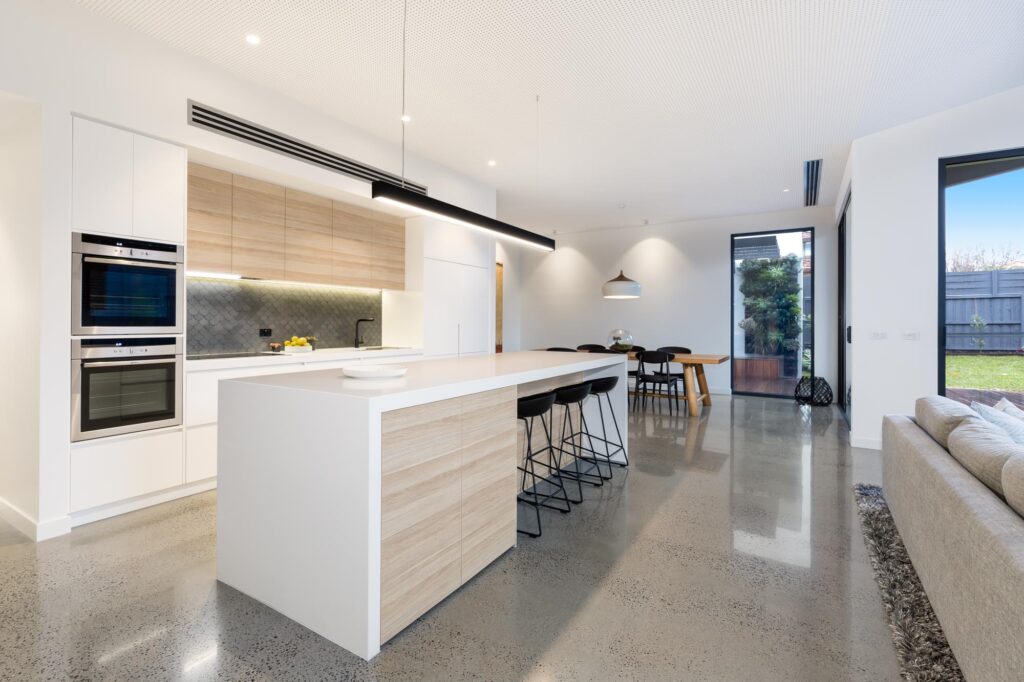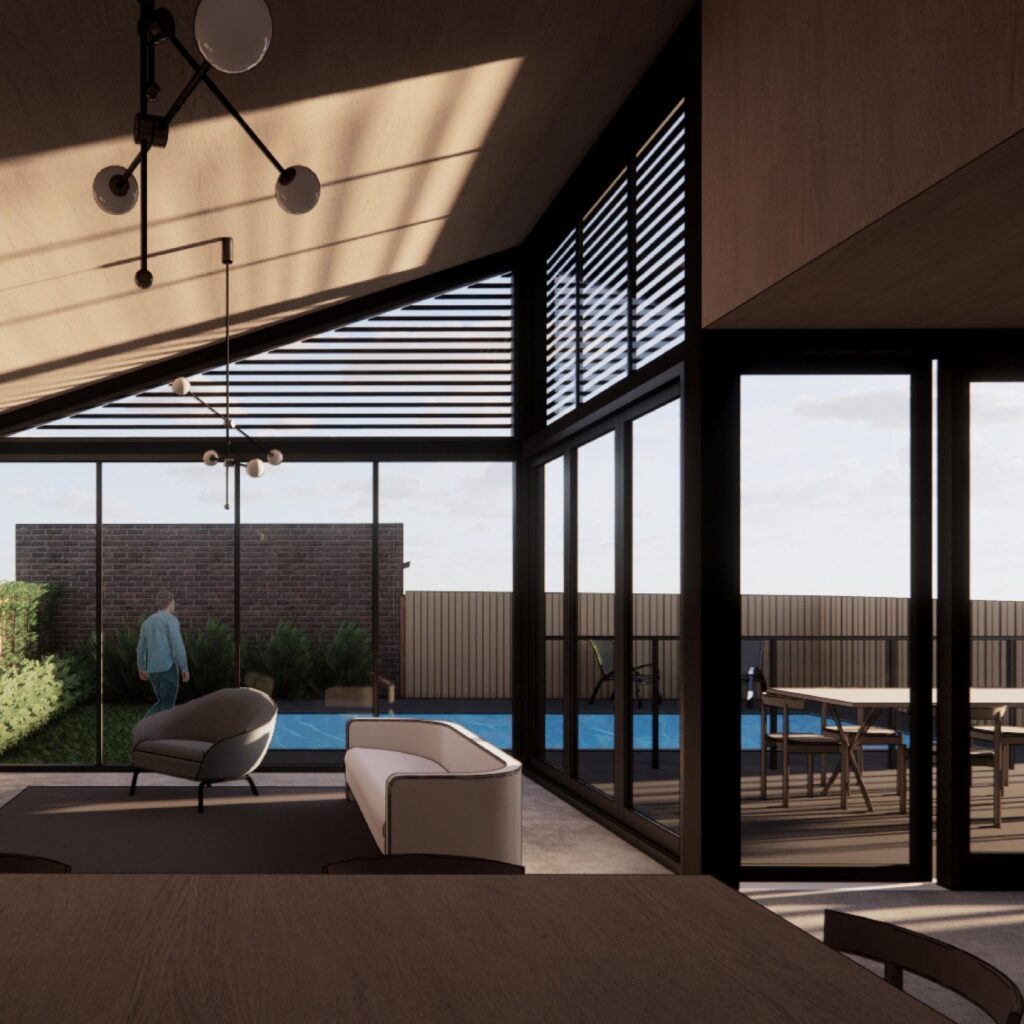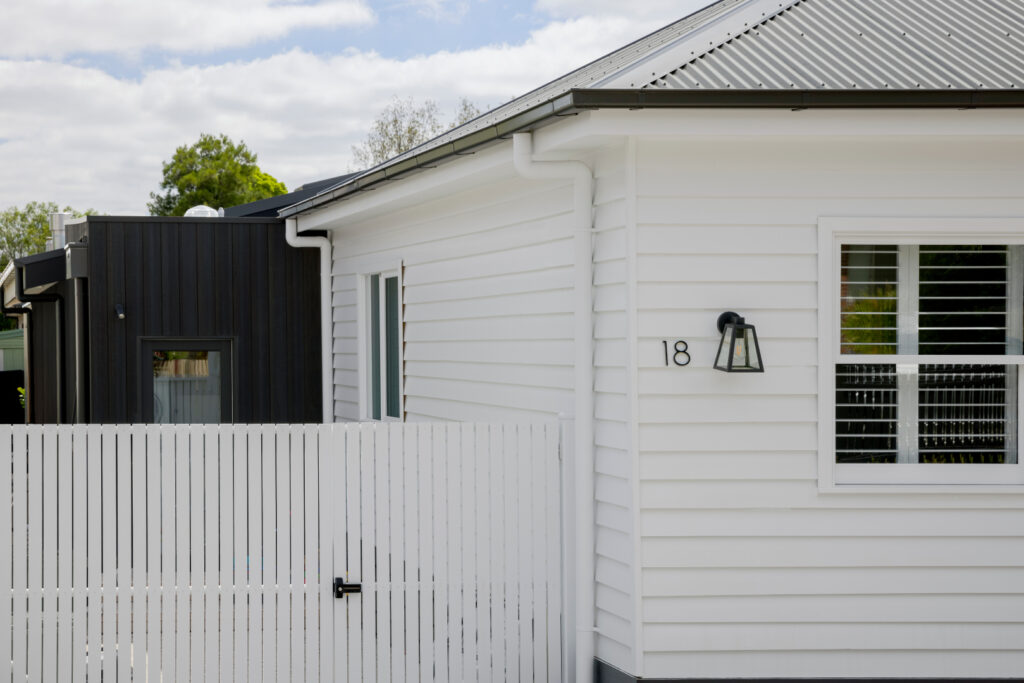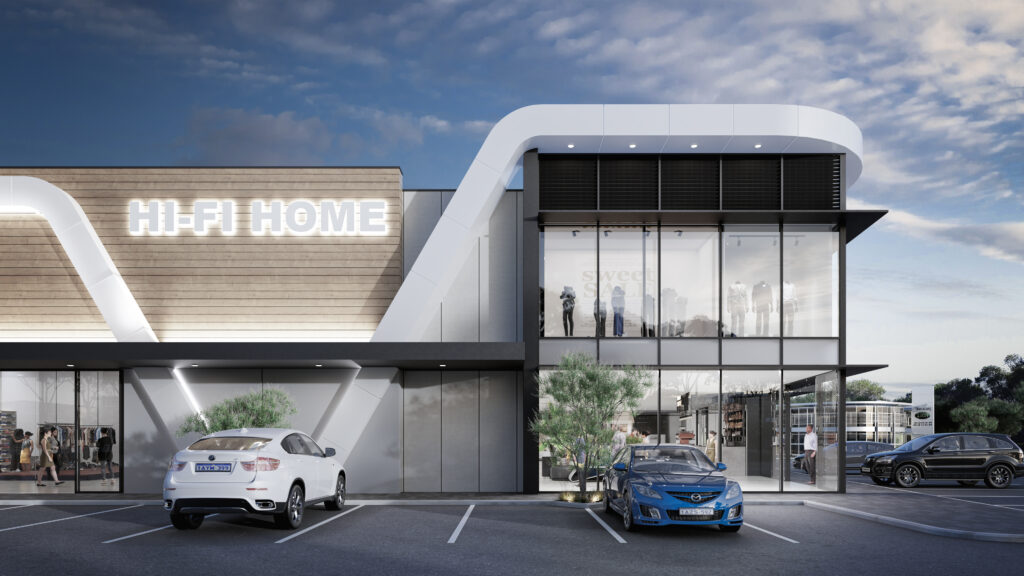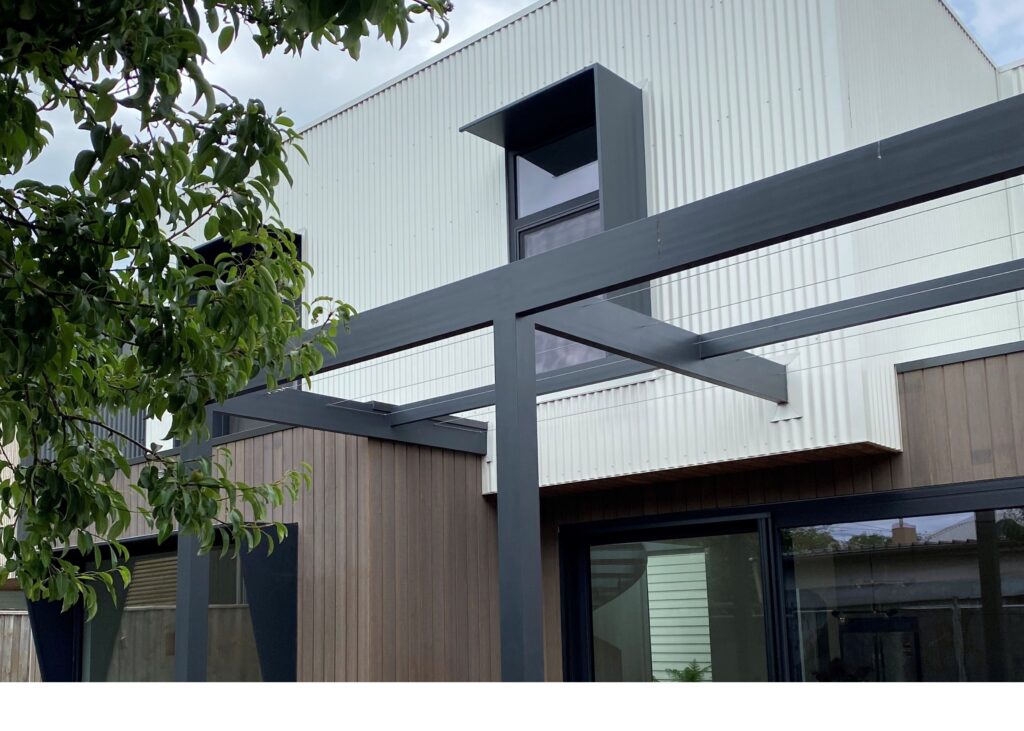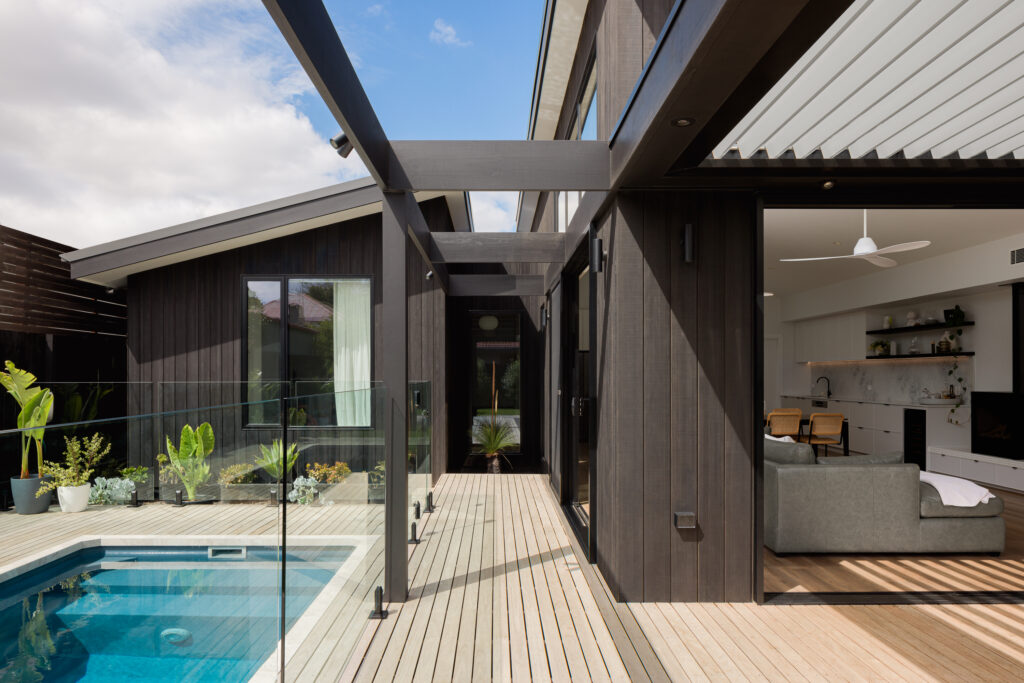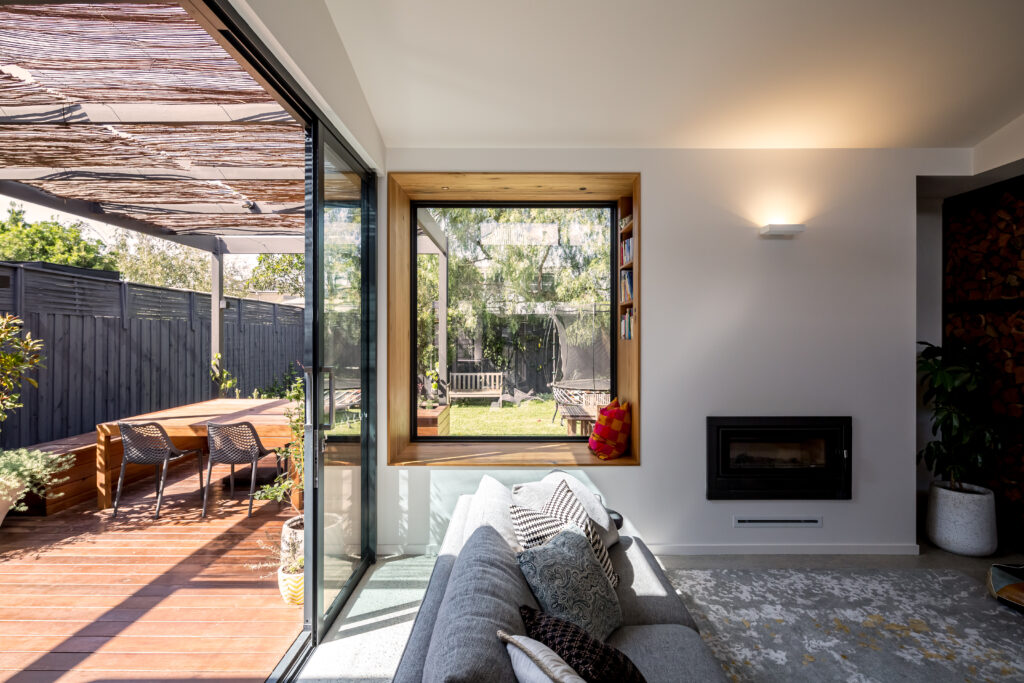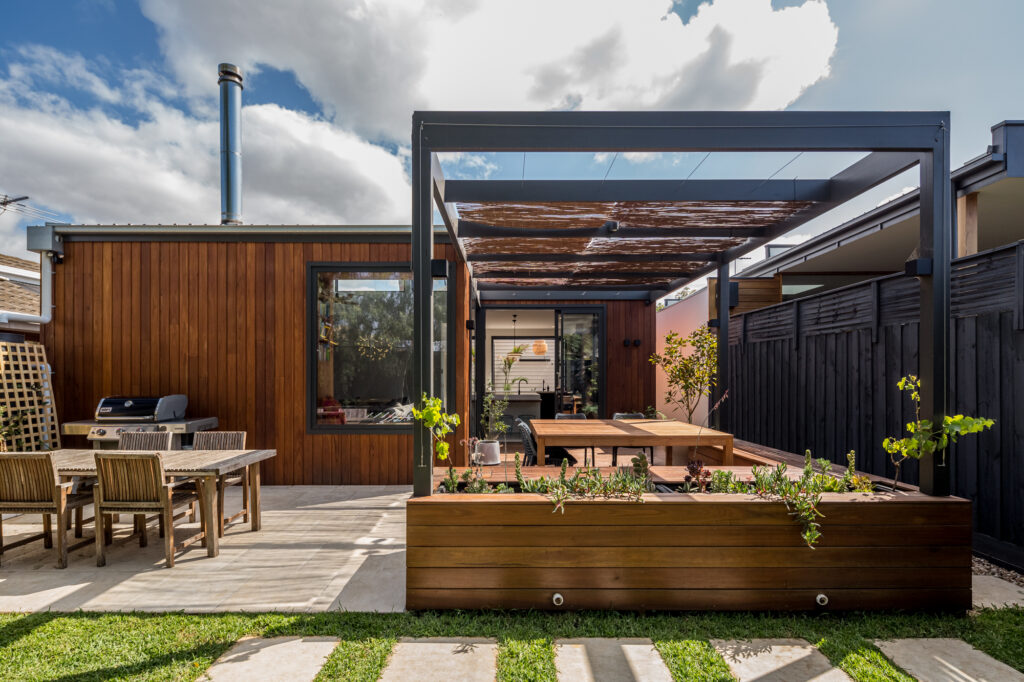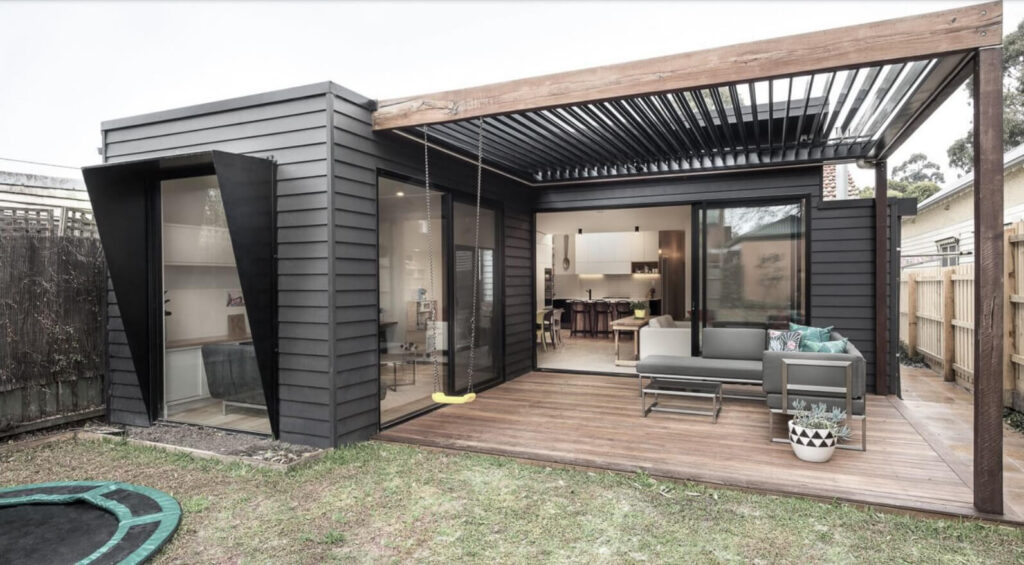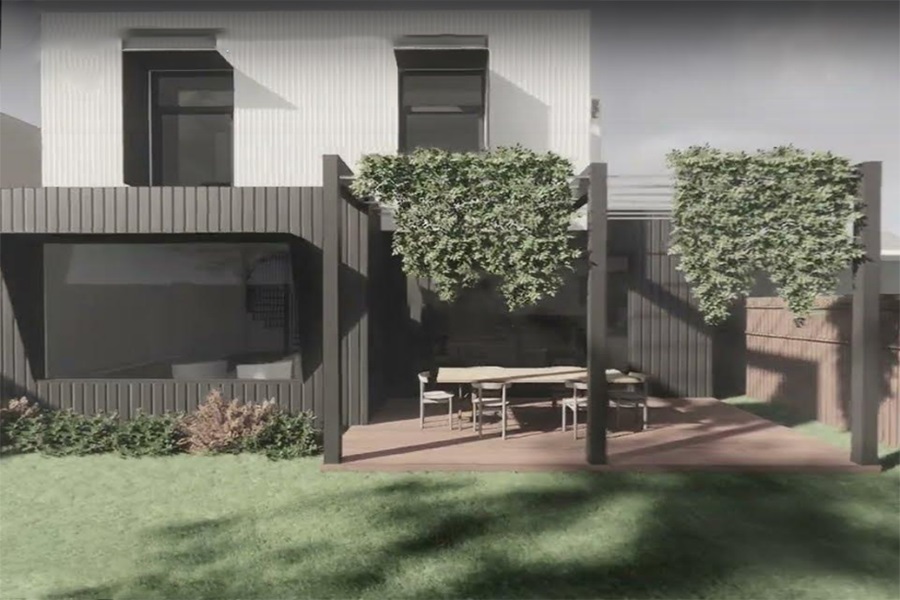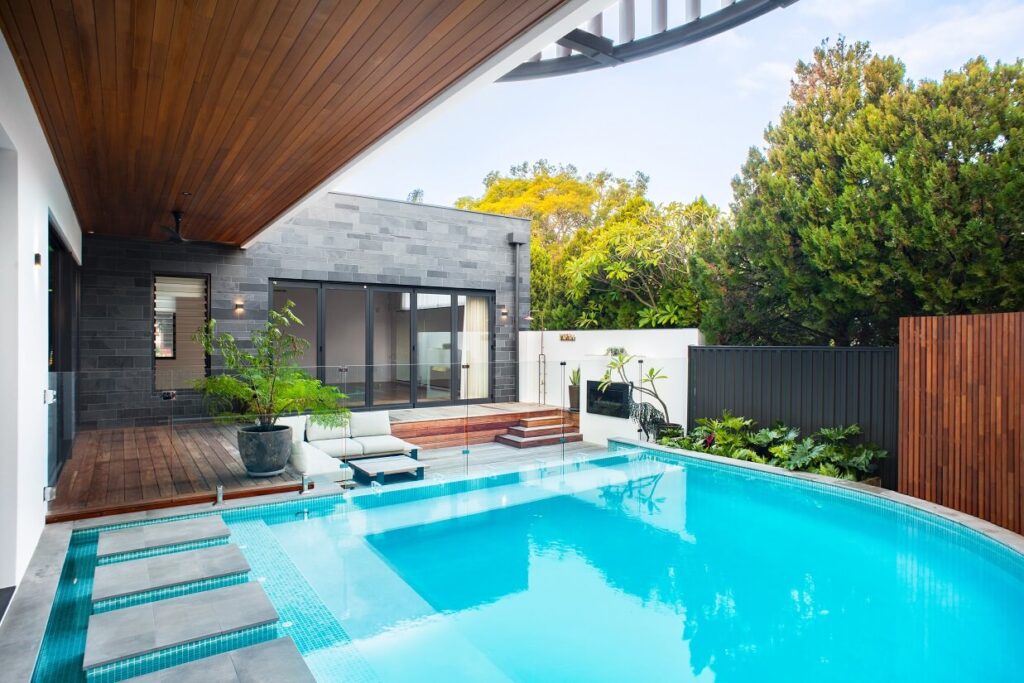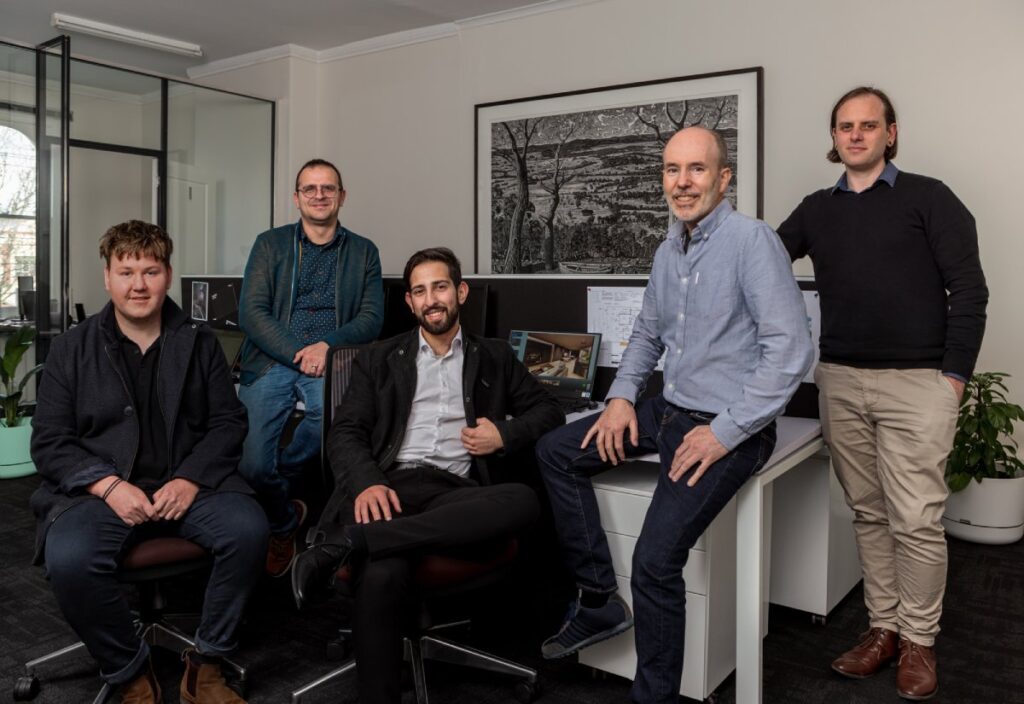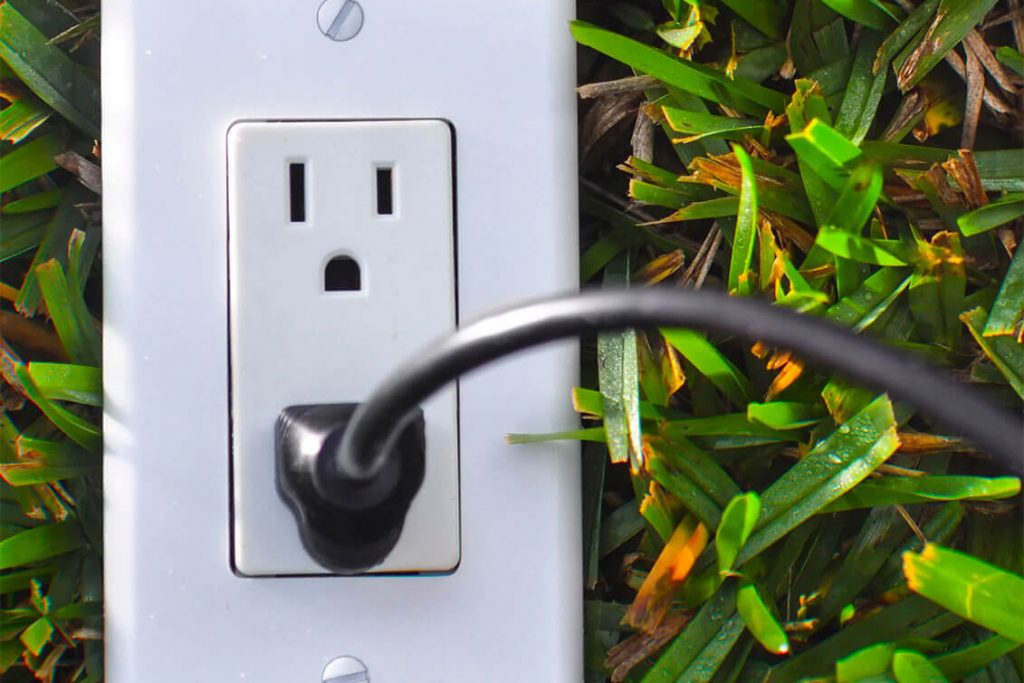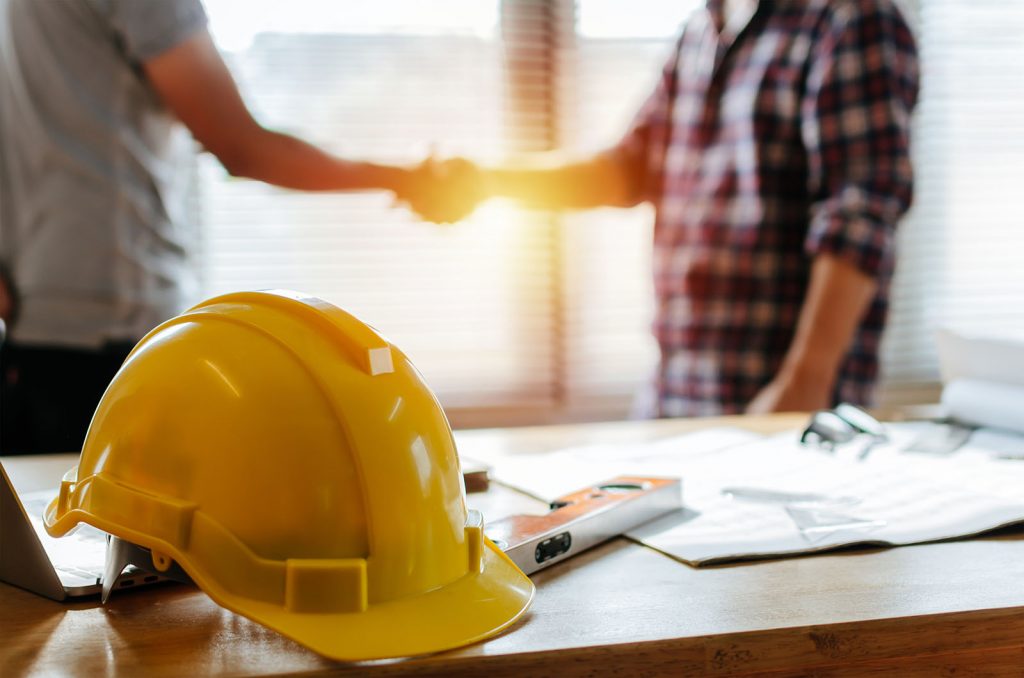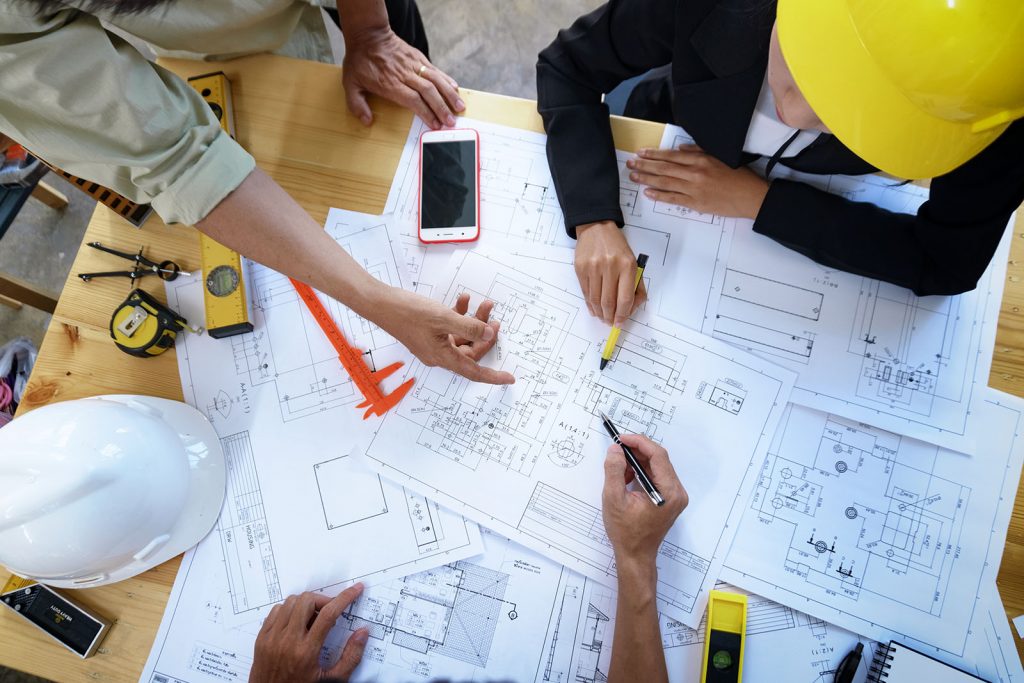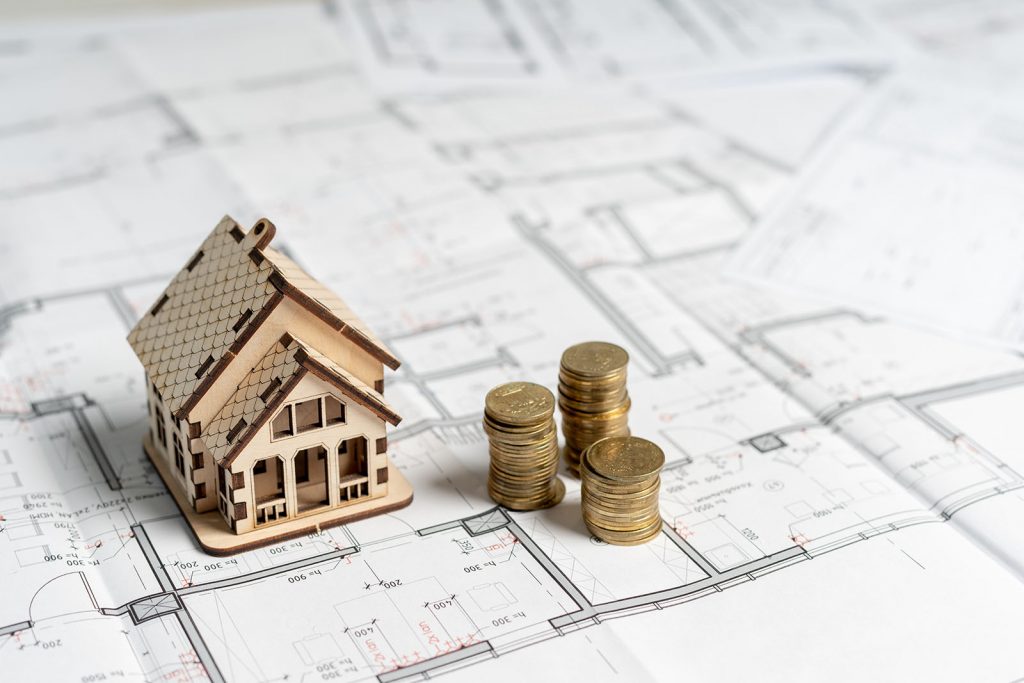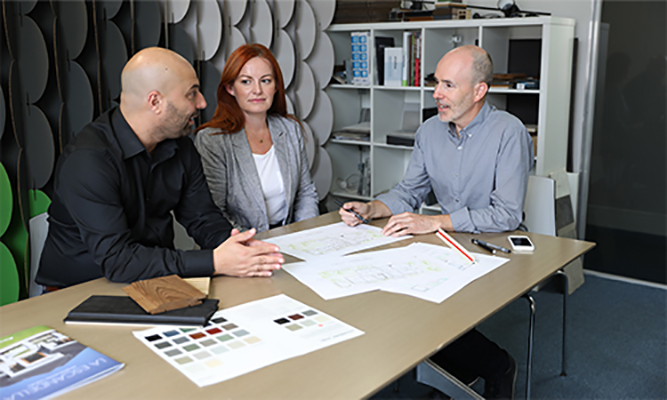Energy-efficient house design has become a buzzword in the world of architecture and homeownership. With a growing awareness of environmental issues and the desire to reduce energy costs, people are increasingly seeking homes that not only look beautiful but also function sustainably. If you’re a Melbourne homeowner, this article will provide you with valuable insights into the fundamental principles of energy-efficient house design. We’ll delve into the 10 key principles that can transform your home into a green and cost-effective haven.
“Energy efficiency should be on the priority list for all home improvement work these days. Canny builders will be able to provide homeowners with energy efficient measures which help them to save money and the planet.” – Sara Beeny, an English Broadcaster and Entrepreneur
Proper Insulation
According to an article by Building Knowledge, proper insulation keeps the home cool during summer and warm during winter. It creates a consistent temperature throughout the house, adds thermal comfort, and reduces unwanted heat loss. However, a house with poor insulation can experience mould growth, major air leakage, or uneven temperatures, making the home uncomfortable and less healthy. The cornerstone of energy-efficient house design is proper insulation. It ensures that your home maintains a stable temperature year-round, reducing the need for excessive heating or cooling. Adequate insulation materials, like natural fibres, fibreglass or foam, can be strategically placed in your walls, roof, and floors to prevent heat from escaping in the winter and infiltrating in the summer.
High-Performance Windows
Energy-efficient windows are designed to keep the heat out in summer and trap it inside during the winter. Double or triple-glazed windows with low-emissivity coatings provide superior insulation, reducing your reliance on artificial heating and cooling systems.
Passive Solar Design
Harnessing the power of the sun is a fundamental principle of energy-efficient house design. A well-thought-out design can maximise natural light and heat, reducing the need for artificial lighting and heating. Proper positioning of windows, skylights, and thermal mass materials can help capture and store the sun’s energy.
Efficient Heating and Cooling Systems
Modern, energy-efficient heating and cooling systems are designed to use less energy while maintaining a comfortable indoor environment. Technologies like heat pumps and geothermal systems can significantly reduce energy consumption and costs.
Energy-Efficient Lighting
Switching to energy-efficient lighting options, such as LED or CFL bulbs, can have a substantial impact on your energy bills. These bulbs last longer and use significantly less energy compared to traditional incandescent bulbs.
Appliance Selection
When designing an energy-efficient home, it’s essential to choose energy-efficient appliances. Look for the ENERGY STAR label, which signifies that the appliance meets strict energy efficiency guidelines set by the Environmental Protection Agency (EPA).
Proper Ventilation
Good indoor air quality is vital, and an efficient ventilation system ensures that you receive fresh air without compromising energy efficiency. In addition to that, according to an article by Strange Buildings, Architecture and Real Estate, poor indoor air can carry pollutants like dust, pollen, and pet dander, which can lead to a myriad of health issues — ranging from minor irritations like allergies to more severe conditions such as asthma. Heat recovery ventilators (HRVs) and energy recovery ventilators (ERVs) exchange indoor and outdoor air without losing the energy invested in heating or cooling.
Water Efficiency
Energy-efficient house design extends to water conservation. Installing low-flow fixtures, using water-efficient appliances, and incorporating rainwater harvesting systems can significantly reduce water consumption and, in turn, energy usage.
Sustainable Materials
The choice of building materials can make a significant difference in the sustainability of your home. Opt for sustainable materials, like bamboo flooring or reclaimed wood, which have a lower environmental impact and are often energy-efficient to produce.
“Sustainability is treating ourselves and our environment as if we are to live on this earth forever.” – Arron Wood, an Australian Environmentalist
Smart Home Technology
The integration of smart home technology can further enhance energy efficiency. Smart thermostats, lighting systems, and home automation allow you to control and monitor your home’s energy use, making it easier to optimise your energy consumption.
Incorporating these 10 key principles into your home design can result in an energy-efficient haven that not only reduces your carbon footprint but also saves you money. When it comes to energy-efficient house design, Mesh Design Projects stands out as a trusted partner.
Mesh Design Projects offers a full design service, guiding you through the entire process, from initial concept to construction documentation. Our team of Melbourne building designers ensures that your dream home is not only visually stunning but also environmentally responsible. We prioritise energy efficiency, comfort, and cost-effectiveness, all while keeping your budget in mind.
Are you ready to turn your dream of an energy-efficient home into reality? Schedule a free consultation with Mesh Design Projects today and start your journey towards a sustainable, modern, and comfortable living space.
By following these 10 key principles, you can create a home that not only reflects your lifestyle but also contributes to a more sustainable and budget-friendly future.
FAQs
What is an energy-efficient house design?
Energy-efficient house design is an approach to creating homes that minimise energy consumption and environmental impact. It involves using various strategies and technologies to reduce energy usage for heating, cooling, lighting, and appliances while maintaining a comfortable living environment.
How can I make my home more energy-efficient?
To make your home more energy-efficient, consider proper insulation, high-performance windows, efficient heating and cooling systems, energy-efficient lighting, and smart home technology. You can also use sustainable materials and implement passive solar design.
What are the benefits of energy-efficient house design?
Energy-efficient house design offers benefits like lower energy bills, reduced environmental impact, improved indoor air quality, and increased comfort. It can also enhance the resale value of your home and contribute to a more sustainable future.
Are energy-efficient homes more expensive to build?
While energy-efficient features may add some upfront costs, the long-term savings on energy bills often outweigh the initial investment. Plus, many government incentives and rebates are available to help offset these costs.
What is passive solar design?
Passive solar design is a technique that uses the sun’s energy for heating and cooling a home without relying on mechanical systems. It involves the strategic placement of windows, thermal mass materials, and insulation to maximise natural heat and light.
How do I choose energy-efficient appliances?
Look for appliances with the ENERGY STAR label, which indicates they meet high energy efficiency standards. Additionally, consider the appliance’s size, features, and energy consumption to ensure it meets your needs.
What are the best insulation materials for an energy-efficient home?
Common insulation materials include fibreglass, foam, and cellulose. The best material depends on your specific needs, so it’s essential to consult with a professional to determine the most suitable option for your home.
How do I monitor my home’s energy efficiency with smart home technology?
Smart thermostats, lighting systems, and energy monitoring devices allow you to control and monitor your home’s energy use through a mobile app or web interface. They provide real-time data and insights to help you optimise energy consumption.
Ready to turn your home into an energy-efficient masterpiece? Schedule a free consultation with Mesh Design Projects today and kickstart your journey to sustainable living!
